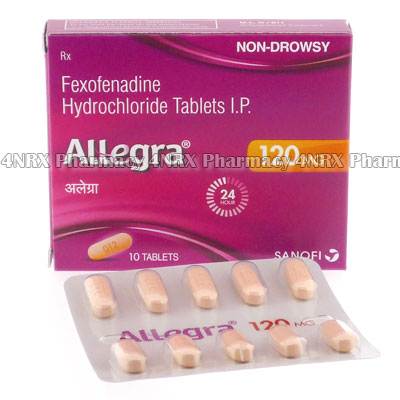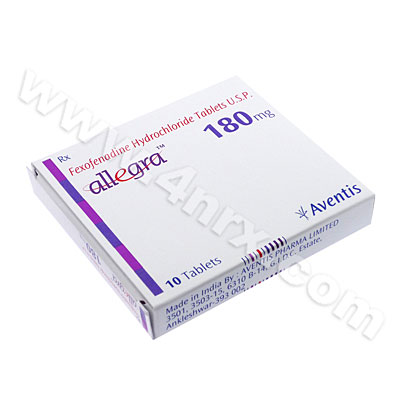 |
Home  Allergies Allergies  Allegra (Fexofenadine HCL) Allegra (Fexofenadine HCL) |
|
|||||||||
|
|
Allegra (Fexofenadine HCL)
What is Allegra (Fexofenadine HCL) used for? Allegra (Fexofenadine HCL) is an antihistamine used to treat the symptoms of hay fever such as sneezing, watery eyes, itchiness and a runny nose. The medication treats allergies by reducing the effects of the natural chemical histamine, which causes these symptoms to occur. It can also be used to treat chronic idiopathic urticaria. How should I use Allegra (Fexofenadine HCL)? Always follow your physician's instructions for using Allegra (Fexofenadine HCL) to get the most effective results. The tablets are normally swallowed whole and can be taken with or without food. It may be taken once or twice each day, but your particular dosage will depend on your symptoms and current health. Do not crush, chew, or alter the tablets before use as this may lead to unexpected complications. What are the side effects of Allegra (Fexofenadine HCL)? Some patients using Allegra (Fexofenadine HCL) have reported experiencing some side effects. These may include:
Immediately inform your physician if you notice a deterioration in your symptoms, a fever, body aches, or chills. These conditions may require reduced dosages or other changes to prevent further problems. Please Note Strictly follow all instructions provided to you by your physician or pharmacist while using Allegra (Fexofenadine HCL). Optimum and safe dosage can differ based on the patient and the condition being treated. As this medication may be unsafe for certain patients, it is essential you always inform your physician if you are pregnant or breastfeeding, as well as if you have any allergies, other illnesses, or ongoing health conditions, especially kidney disease, and if you are taking any other form of medication, supplements, or herbal products. Patients who suffer from phenylketonuria should consult their physician before taking this medication, as this drug contains aspartame. Immediately seek emergency medical care if you have any allergic or hypersensitive reaction. Common signs of a reaction include hives, swelling, skin rashes, chest pains, as well as trouble breathing or swallowing. 

|
||||||||||||||||||||||